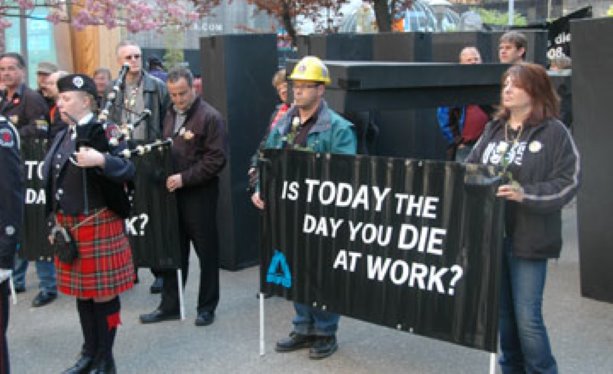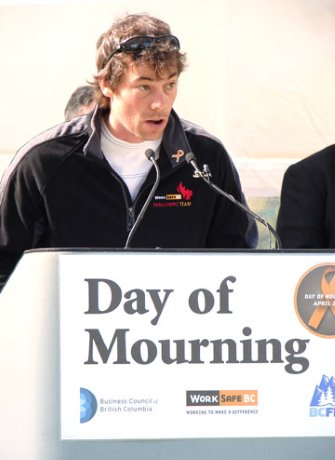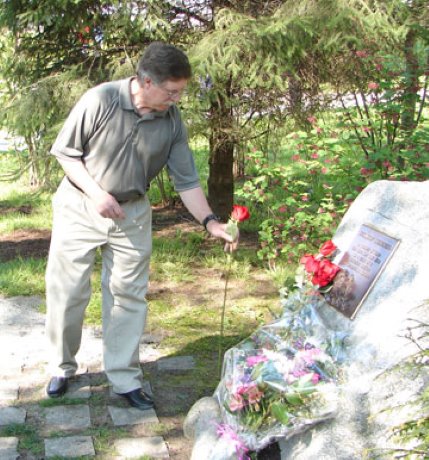Gord Tuck is the owner of his own construction engineering company and a world-class athlete. The road to becoming his own boss started when he lost a leg in a workplace logging accident.
Day of Mourning
Gord Tuck is the owner of his own construction engineering company and a world-class athlete.
His company provides building excavations for new homes, site servicing, demolitions, and stream rehabilitation. It also builds and maintains logging roads.
Tuck started his venture after working for an engineering company for several years, but the road to becoming his own boss started when he lost a leg in a workplace logging accident.
“In a few seconds, in ways I never thought of, on May 22, 1991, my whole world came crashing down because of a workplace accident,” he told a large audience gathered to commemorate the Day of Mourning in Hastings Park in Vancouver.
Tuck was an 18 year old with his first real job, working as a landing bucker for a logging contractor.
A skidder was dragging felled trees to the landing and it was his job to saw the branches off and clean the logs up, so they could be loaded on logging trucks by a front end loader.
A glitch at the landing area turned into a disaster, when his partner’s saw got stuck in a tree.
His partner flagged the loader down to give the tree a shake and free up the saw.
“I was fixing my own chainsaw a little way off in the corner of the landing, but there was so much dust and debris in the air the operator didn’t see me,” he said, adding that his back was to the loader.
It came right at him.
“I tried to jump out of the way by diving over a four-foot diameter log, but it was too late,” he said.
His legs were caught and crushed against the log. The loader cut through the bone of his left leg and narrowly missed the bone in the other leg.
He had his left leg amputated and even survived a heart attack during surgery. He spent a month in hospital, two more with home care nursing and five months at a Lower Mainland rehabilitation centre.
On a Christmas break from rehab, Tuck tried skiing with friends.
After a couple of years of skiing, he started taking it seriously and his able bodied friends couldn’t keep up.
He slowly moved up the ranks and made the National Alpine team in 1995.
“I represented Canada in the 1998 Paralympic games in Japan and four years later in Salt Lake City,” he said.
He won a silver medal in the downhill event for alpine skiing at the World Championships in 2000 and 2004.
After university, he took an engineering job designing and manufacturing gas wood fireplaces.
After 10 years of skiing and engineering work, he started his own company.
As his alpine career began winding down, he shifted to water skiing and made the national team, winning a bronze medal in slalom at the 2003 World Championships and set a Canadian record in 2008.
He had some advice for the gathering.
“First, safety is number one in my business. The guys on my crew know they have a responsibility to look after themselves and each other. The last thing I need is to face a worker’s family, people like my parents, and explain why a limb or a life was lost.”
He also shared a second lesson about hard work and positive thinking.
“Losing a leg, I could’ve lain back and said, ‘My life is over’. But young as I was, I knew I had to make the best of the time I had left,” he explained.

1/2
A procession (below) carried banners and coffins representing workers who died on the job during an event that started at the Vancouver Art Gallery.

2/2
Gord Tuck











Recent Comments
comments for this post are closed